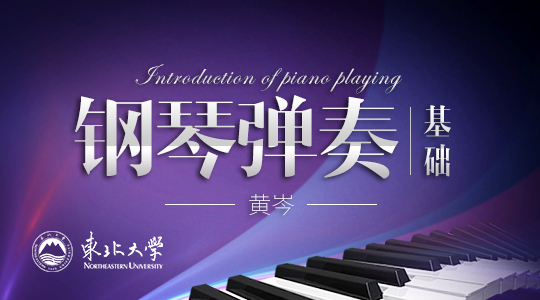
当前课程知识点:e时代的新课堂——在线教育概论 > 第五章 在线教育教学案例 > 5.2.2章节实例 > 5.2.2章节实例
我以践行社会主义核心价值观
Take the teaching of the chapter entitled "Practicing Core Socialist Values"
这一章的教学为例
as an example.
这一章内容的在线课程
This chapter's online lessons
由十个教学短视频组成
consist of ten short instructional videos.
一是社会主义核心价值观的发展由来
The first part is the origin of core socialist values.
这是一段视频
It includes a video.
二是社会主义核心价值观的重要意义
The second part is the significant meanings of core socialist values,
这一部分由三段视频组成
which consists of three videos.
它包括重要意义之一
It includes the first significant meaning:
中国特色社会主义的导航灯
the navigation for socialism with Chinese characteristics;
重要意义之二
the second significant meaning:
维系社会团结和谐的稳定器
the stabilizer to ensure solidarity and harmony in our society;
重要意义之三
the third significant meaning:
涵养心灵守望道德的栖息地
the habitat where spirit is cultivated and moral standards are followed.
三是社会主义核心价值观的基本内容
The third part is the foundation of core socialist values.
这一部分也有三段视频
This part consists of three videos too,
包括有国家层面
Their content includes the national level:
富强 民主 文明 和谐
prosperity, democracy, civility, harmony;
社会层面 自由 平等 公正 法治
the social level: freedom, equality, justice, rule of law;
公民层面
the citizen level:
爱国 敬业 诚信 友善
patriotism, dedication, integrity and friendliness.
四是如何培育践行社会主义核心价值观
The fourth part is how to cultivate and practice core socialist values.
这一部分由三段视频组成
This part consists of three videos.
它包括
Their content includes:
以中华民族优秀传统文化为历史底蕴
cultivating and practicing core socialist values
培育践行社会主义核心价值观
based on the history of outstanding traditional Chinese culture;
以中国特色社会主义实践为现实基础
cultivating and practicing core socialist values
培育践行社会主义核心价值观
based on the currently existing socialism with Chinese characteristics;
以当代中国面临的时代问题为价值指向
cultivating and practicing core socialist values
培育践行社会主义核心价值观
based on the values driven by the problems facing contemporary China in these times.
在线课程的设计
The design of the online courses
要有利于学生开展自主灵活的学习
should be helpful for students to actively and flexibly learn.
我们在制作和使用的过程中
During the process of creating and using online courses,
突出了以下特点
we focus on the following features.
一是注重以问题为导向
First, we focus on designing problem-driven
设计教学短视频
short instructional videos.
二是融通校内外的思想政治理论教育资源
Second, we combine educational resources for the "Ideological and Political Theory" course on or off campus.
三是提供大学生课外阅读的书目与材料
Third, we offer book lists and resources for university students' extracurricular reading.
四是定期开展在线自测
Fourth, we regularly carry out online self-examinations
提升课程体验感
to improve the learning experience.
五是线上讨论区交流问答
Fifth, we arrange communication and Q&As in the online discussion zone,
开展教学互动
and carry out instructional events.
六是在学期末利用线上测试
Sixth, we use online tests at the end of semesters
强化学习监督
to enhance supervision of students' learning progress.
第二个环节是大班授课
The second part is teaching large classes.
相对于在线课程
Compared to online courses,
是由一个一个的细碎化的小故事组成而言
which resemble telling a series of fragmented short stories,
大班授课是要给学生们讲一个大故事
teaching a large class is like telling students a long story.
教师的课堂讲授要针对重点难点问题
During lectures, the lecturers should focus on important and difficult problems
加强教学的针对性和深入性
and enhance their teaching's pertinence and thoroughness.
在社会主义核心价值观一章的大班授课中
During the process of teaching the chapter entitled "Core Socialist Values" to a large class,
我们把大学生如何做
we use the topic whereby university students
社会主义核心价值观的积极践行者
should be active practitioners of core socialist values
作为教学专题
as a special topic for teaching,
结合学生的学习生活和思想实际
and design the teaching content and approaches
来组织教学内容设计教学方法
based on students' learning, lifestyle and thought.
这一专题的讲授
The teaching of this special topic
我们主要从以下四个方面展开
is mainly divided into the following
包括有
four parts.
一 勤学
The first part is studiousness:
下得苦功夫 求得真学问
making great efforts to purse real knowledge.
二 修德
The second part is moral cultivation:
加强道德修养 注重道德实践
enhancing moral cultivation and focused on moral practice.
三明辨
The third part is being able to distinguish:
善于明辨是非 善于决断选择
being good at distinguishing between right and wrong as well as making decisions and choices.
四 笃实
The fourth part is frankness:
扎扎实实干事 踏踏实实做人
being down to earth and honest.
在课堂讲授的过程中
During classroom teaching,
教师要注重以下几个方面
teachers need to pay attention to the following aspects.
一是以研究为基础
First, we need to give a thorough lecture
努力把专题的内容讲深讲透
about the special topic based on research,
从而发挥好教师的主导作用
so that we can play a guiding role as teachers.
围绕社会主义核心价值观的相关教学研究
Revolving around the instruction and research related to core socialist values,
我陆续撰写发表有三篇论文
I've written and published three papers.
有了研究的基础
With legitimate research results,
教师在讲课过程中遇到各种问题
teachers can feel more confident when encountering
就能做到手中有粮心中不慌
various problems during teaching.
二是注重发挥教师的个性专长
Second, we should focus on giving full play to teachers' personalities and talents.
在用足理论的力量和逻辑的力量的同时
While giving full play to the strengths of theories and logic,
也用好情感的力量和人格的力量
we should make good use of our emotions and personalities as well.
我以往从事学生工作的经历
My past experience of working on student affairs
为我开展教学互动和方法创新
has paved the way for my endeavors to carry out
奠定了良好的基础
instructional interaction and approach innovation.
三是注重运用雨课堂技术
Third, we use the Rain Classroom technology
实现轻量级的翻转课堂
to create a lightweight version of the flipped classroom,
强化教学反馈 提高学生参与度
thus enhancing instructional feedback and encouraging student participation.
我对弹幕 投票 答题 发红包
By using live commenting, voting, quizzes, red packets
等雨课堂技术手段的运用
and other Rain Classroom technologies,
极大地调动了学生的参与性
I've greatly encouraged student participation
让课堂气氛热烈活泼起来
and lightened up the class atmosphere.
第三个环节是小班讨论
The third part is small-class discussions.
小班讨论课
Small-class discussions
是对大班专题讲述的延伸和深化
are the extension and expansion of special topic lectures in large classes.
也是基于线上课程资源的
It is the instructional practice of flipped classrooms
翻转课堂教学实践
based on online courses.
它的优势在于学生成为课堂的主体
Its advantages lie in that the class is student-oriented
学生是教学活动的主动行动者
and the students are active participants in instructional activities.
在践行社会主义核心价值观-
As for my design of discussions about the special topic,
这一专题的小班讨论课设计中
"Practicing Core Socialist Values" in small classes,
我主要引导学生围绕以下专题
I mainly ask my students to carry out investigations and research
进行调查研究
on the following special topics.
一是怎样认识
The first topic is the views
中华优秀传统文化的当代价值
on the present-day value of outstanding traditional Chinese culture.
二 如何看待和评价
The second topic is the views and comments
精致利己主义者现象
on sophisticated egoism.
三 社会主义民主价值观
The third topic is a comparison of socialist democratic values
与西方民主价值观的比较
and Western democratic values.
四 在互联网时代
The fourth topic is the correct understanding
如何正确认识网络自由 网络民主
of internet freedom and cyber democracy in the internet era.
五是学生们可以围绕
The fifth topic consists of several topics related to
社会主义核心价值观的专题
core socialist values, which the students
自选一些题目
can freely choose.
在整个学期
For a whole semester,
我们开设有七个专题的小班讨论课
we have discussions in small classes on seven special topics.
在操作中我们把选择权交给学生
During the process, we give the students the right to choose their topics.
他们根据自身的需要和兴趣
Based on their own needs and interests,
至少选择其中两次参与进来
they choose and attend at least two lessons.
在选定专题并报名之后
After they've chosen their special topics and enrolled in them,
我们组织学生建立研究团队
we organize them and set up research teams,
针对其中的子课题开展调查研究
carrying out investigations and research on sub-topics.
研究成果在小班课堂上进行分享和讨论
The research results will then be shared and discussed in small classes.
教师要引导每位学生
Teachers should encourage all their students
都有发言和讨论的表现
to give speeches and participate in the discussion.
讨论课后根据学生在讨论活动中的情况
After the discussion, according to how the students perform,
教师还可以引导一些学生
teachers can choose to guide several students
进一步深入思考
into further thinking
鼓励他们把自己的思考所得写成文章
and encourage them to write down their thoughts
在课程微信公众号上发表出来
in articles which they can publish on the course's official WeChat account.
归纳一下
To sum up,
小班讨论课有三个主要流程
the discussion in small classes consists of three major steps.
一是教师主导规划设置
The first step is for teachers to plan and decide on the
小班讨论的主题和实施方案
topics that are going to be discussed in the small-class discussions.
二是学生根据自身需求
The second step is for students, based on their personal needs,
自主选择和主动参与小班翻转课堂
to choose and attend the small-class flipped classroom[删掉"s"] of their own free will.
三是学习活动的课后延伸与网络分享
The third step is the extracurricular extension and online sharing of learning activities.
第四个大的环节是课后实践
The fourth step is extracurricular practices.
课后实践是课堂教学活动的课外延伸
Extracurricular practices are the extracurricular extension of instructional activities in class.
它对于促进学生的
They're important for encouraging students
坚持知行合一 开展自我教育
to constantly learn by doing,
有着重要的意义
and to engage in self-teaching.
作为践行社会主义核心价值观的课后作业
As for the homework of Practicing Core Socialist Values,
我布置学生们开展人物访谈活动
I asked my students to interview people.
学生们以行政班为单位分成两组
The students were divided into two teams by administrative class.
第一组访谈本院系
Each student of the first team interviewed
学科专业领域的一位优秀校友
an outstanding alumnus or alumna from their own discipline in their own department,
调研他们的价值观与成长成才之路
investigating and researching their values and how they became such talented individuals.
第二组访谈一位学校里
Each student of the second team interviewed
从事服务工作的后勤职工师傅
a logistics employee from the university working in the service industry,
调研了解清华园里的普通劳动者的
so that they could investigate and research the lives and dreams
生活与梦想
of the ordinary workers in Tsinghua University.
许多学生反映
Many students said that the combination of classroom teaching and extracurricular activities,
这种把课内课外线上线下相结合的方式,
online instruction and offline activities,
有效促进了他们的学习和思考
was effective in promoting their learning and thinking.
有一位大一学生给我发来微信说
A freshman student sent me a WeChat text saying,
印象中的思政课都是填鸭式的授课方式
"I always thought ideological and political courses were taught by indoctrinating students with ideas.
没想到这门课充分激发了我的思考
I never thought that this course would truly inspire my thinking
帮助我找到了大学四年的发展方向
and help me find my development path for my four years at university."
最后我想借花献佛
To sum up, I'd like to borrow a good idea for the conclusion of this topic
用我的同事冯务中老师
by using a comment about blended teaching that was said by my colleague,
对混合式教学的一段评价来作为总结
Mr. Feng Wuzhong
他说
He said:
慕课视频让学生的学习更为灵活
"MOOC videos have made it more flexible for students to learn;
任何时间任何地点都能观看
they can watch the videos anytime, anywhere.
提高了学习效率
The courses have improved their learning efficiency.
课堂讲授环节主要讲授
During the classroom teaching, challenging and controversial problems
带有挑战性争议性的问题
form the basis of the teaching.
运用智慧教学工具雨课堂
By using Rain Classroom, a smart teaching tool,
调动学生手机答题提高抬头率
we can encourage students to answer questions on their cellphones and listen more carefully to lectures,
解决入耳问题
and listen more carefully to lectures, thus keeping them engaged during class.
小班讨论环节
During small-class discussions,
同学们针对某一重要问题展开交流辩论
students communicate and debate an important issue,
给了学生自由思考的空间
which makes it possible for students to think freely,
提高互动性 解决入脑入心问题
improve their interaction skills, and keeps students engaged in class both physically and mentally.
课下作业使同学们有更多自我实践
The homework gives students more opportunities to practice their ideas
和自我审视的机会
and take a close look at themselves,
解决真信问题
allowing them to truly believe in what they're taught.
好了 谢谢大家
Ok. Thank you all for your time today.
我的案例分享就到这里
That's it for my case study sharing.
-混合式教学该怎么做?与清华老师一起聊聊
-看清华老师如何进行大班混合式教学
--Video
-如何做好混合式课堂的互动
--Video
-与清华大学老师聊聊慕课独特的教学设计
-“挑战60s”授课短视频大赛
--Video
-与清华大学老师聊聊慕课的制作与运营
--Video
-1.1在线教育发展现状
--html
-1.1.1在线教育带来了e时代的新课堂
-1.1.2师生说
--1.1.2师生说
-1.1.3我国在线教育的特点
-1.2什么是在线教育
--html
-1.2.1概念解析
-1.2.2教育的技术发展史
-1.2.3在线教育的五要素模型
-1.3在线教育对教师的机遇与挑战
--html
-1.3.1机遇篇
--1.3.1机遇篇
-1.3.2挑战篇
--1.3.2挑战篇
-1.4在线教育发展的历史
--html
-1.4.1二十世纪的发展
-1.4.2二十一世纪的发展
-1.4.3在线课程三要素
-1.4.4虚拟教育组织
-1.5课程内部体系和外部关系
-第一章 解读在线教育--单元习题
-讨论题
-2.1数字时代带来教育变革
-2.2在线教育更适应学生的学习需求
--html
-2.2.1教育需求的发展
-2.2.2学习风格与学习类型
-2.2.3多模态数据分析学生学习行为与需求
-2.2.4教育目标
-2.2.5拓展学习时空,促进深度学习
-2.2.6自主学习系统的案例分享
-2.3在线教育帮助教师成长
-2.4学校和国家为什么要做在线教育
-单元习题--作业
-3.1高等学校在线教育发展
-3.1.1学校现状
-3.1.2平台与联盟
-3.2不同类型的教师都能得益于混合式教学
-3.3混合式教学的好处
-3.3.1当前的教学问题
-3.3.2教师和学生的收益
-3.4混合式教学的关键细节与常见误解
-3.4.1关键细节一
-3.4.2关键细节二
-3.4.3关键细节三
-3.4.4误解篇一
-3.4.5误解篇二
-3.5智慧教学工具的发展
-3.5.1综述篇
--3.5.1综述篇
-3.5.2雨课堂的诞生
-3.5.3雨课堂的功能
-3.5.4课堂教学需要雨课堂
-3.5.5雨课堂解决面授时间紧张的问题
-3.5.6雨课堂解决课前课中课后的学习效果问题
-3.5.7课前课中课后雨课件设计要点
-第三章 高校在线教育进行时--单元习题
-讨论题
-讨论题
-4.1教育实践的展望(一) 教育创新
-4.2教育实践的创新(二) 教育技术与决策
-4.3教育理论的热点趋势
-第四章 在线教育的未来--单元习题
-讨论题
-5.1邓俊辉老师《数据结构》与《计算几何》教学案例
--html
-5.1.1慕课制作与使用心得(一)
-5.1.2慕课制作与使用心得(二)
-5.2张瑜老师《思想道德修养与法律基础》教学案例
--html
-5.2.1教学理念与混合式教学的主要环节
--Video
-5.2.2章节实例
-5.3杨芳老师《大学英语》教学案例
--html
-5.3.1混合式教学设计心得
-5.3.2 University单元教学设计
-5.4于歆杰老师《电路原理》教学案例
--html
-5.4.1小容量班级完全翻转课堂
-5.4.2大容量班级部分翻转课堂
-5.5郑莉老师《C++语言》教学案例 雨课件样例及校内教学心得分享
--Video
-单元习题--作业









